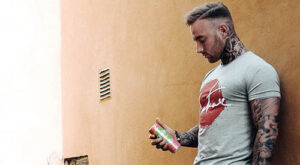One on One with Dr. Chuma on Equity Afia’s New Parents’ Training Programme
How do you keep your child safe at home? What do you do in case your child is unwell or has had an accident? How do you protect your young one from getting common infections? These are questions that people who take care of newborns and children often find themselves struggling with.
Parents, guardians and house managers play a key role in the health and development of children, especially newborns and toddlers. It is therefore important to have them properly trained on how to handle the young ones to protect them from diseases and infections as well as promote their growth and development.
To this end, Equity Afia, a medical franchise of Equity Group Foundation in May 2021 launched the caregivers training programme at its Langata clinic intending to replicate the programme across the country. The franchise now has 46 clinics spread across various parts of the country. They were developed under the foundation’s health pillar to champion access to affordable high-quality healthcare services across the country.
Our writer recently caught up with Dr Benson Chuma who runs the Equity Afia clinics in Langata and Ongata Rongai to talk about the caregivers training that’s offered at the facility every Saturday.
Q: Who is Dr Chuma and why is this caregiver’s training a subject close to your heart?
My name is Doctor Benson Chuma. I’m a medical doctor working with Equity Afia in Biashara Street Lang’ata, and in Ongata Rongai. Equity Afia Langata is one of the 46 clinics spread around the country under the Equity Afia franchise.
They are run by doctors who were initially beneficiaries of the Equity Leadership Programme. As alumni of the programme, we help set up these facilities in our communities to reach them with high-quality health services at affordable rates.
The caregivers training is a programme we are running was born out of a need we saw in the community. At Langata for instance, we attended to many new parents who often came with their infants complaining of different kinds of infections or in need of vaccination services. Many times after offering services they had a lot of follow up questions seeking clarifications on various aspects of child care. We also realized that there was a lot of misinformation and myths doing rounds that were impacting negatively on how new parents and caregivers were taking care of the children.
So we thought it wise to fight this by providing them with accurate and relevant information rather than having them seek the same from unqualified people or the internet.
Q: What are some of the myths and misinformation you encounter regarding child care?
The list of inaccurate information about child care is quite wide and at times wild. The most common one was that picking up a baby whenever they cry is spoiling the child. While in most cases a child crying should be a sign to the caregiver that either the child is uncomfortable, needs attention or is unwell. We have heard all manner of stories about breastfeeding as well as keeping the household safer for the children.
There is also a lot of myths related to traditional beliefs that at times could either harm the children or prevent them from getting medical help in good time.
Q: What are the key components of the training you offer the caregivers?
In general, we provide factual information about child care to dispel the rumours spread through the internet and traditional myths which may be harmful to the children. We also give information on safety and basic first aid training.
We train about the growth of the baby, the developmental milestones, and normal occurrences like colic, management of temper tantrums and safe environments in which to bring up a baby. We also train about unforeseen emergencies like a choking baby or if the baby is not breathing for example. We do this by training basic first aid. We also train on how to keep the house and environment as safe as possible for bringing up a child.
When it comes to accidents, for instance, two common scenarios involving newborns include babies suffocating in their cribs and the shaken baby syndrome which is a result of shaking infants vigorously.
Newborn babies often suffocate in their cots due to having unsafe sleeping areas. This could be improved by removing toys within the cot, having a firm mattress, and ensuring that the baby’s feet are at the edge of the cot when sleeping.
The shaken baby syndrome is a brain injury caused by forcefully shaking an infant or a toddler. This mostly occurs during playtime and parents and caregivers are advised to avoid shaking babies.
Q. What are the most common cases and reports received at your facilities?
During the lockdown period with many children staying at home, we saw a lot of injuries involving house falls and scraps. We realized some of the first aid that was being done was not right. Someone is bleeding and trying to run cold water well that should be for a burn. We talk about childproofing the house. We have some kids who just put things into the socket, so we do tell them about things that the socket blockers do, so we can reduce home-based minor accidents.
Q: Whom do you target with the training?
Interestingly, in our mind initially, we anticipated primarily just to have mothers. But we did keep it open to mothers, caregivers, and fathers. Interestingly half of the people who come into our facilities are mothers, then have a quarter of them the fathers walking in with a child. Another is people who bring in the house helps, with the logic being that they spend a lot of time especially if the mother has an eight to five job.
A lot of children will spend the day with the house help, so if your house help doesn’t know what to do if the baby was choking or even the baby is just having tantrums. So, we do that. And that’s why we felt it’s important to train the house helps, and the caregivers as well. We also target kindergarten teachers, primary school teachers, we also feel, they also do care. Of course, the children are a bit older, but they also take care of and interact with them.
For the training, we’ve gotten to the point where literally anybody who is a parent or caregiver is open to come in.
Q: How has the training been received so far?
We started just before Covid and the uptake was very impressive. This is because our clients have confidence in our trainers who are properly trained doctors and nurses from our facilities. We got overbooked and we had to have different days. There is a lot of demand and hunger for this knowledge out there.
There has been a noticeable behaviour change by our clients. A good number of parents who have attended the training have come back to tell us how they have changed things in their houses to improve their children’s safety. Many have actually invested in childproofing their homes to ensure that accidents that can be fatal are avoided.
Q: Can you share with me, one of the most memorable moments that you’ve had, like a case whereby a parent has been naive about how to take care of their child?
I do remember a particular case, where we had a mother coming in with a child who was vomiting. The mother thought that it was a discharge, and the mother was very, very concerned. So naturally, we were also concerned. And we were able to examine the baby and we ascertained that it was regurgitation.
We calmed down the mother, she had tried to do some online manoeuvres on how to deal with choking, but the baby wasn’t responding. This was being done to a three-month-old, yet it was meant for a five-year-old. So, we were able to quickly rectify that situation, and the baby was fine. And after a while, we trained her to differentiate on what’s discharge, what’s just regurgitation, and what’s vomiting. We helped her on how to feed the baby and from then that problem went away and she was happy.
Q: How do you assess the programme and its impact?
First, we concentrated on just ensuring that we got feedback. The main thing was to get feedback from those who are coming in. I think our first measure for impact was individuals who had attended and the feedback they gave us.
So, we’ve seen that the numbers are growing, and our sessions are overbooked. We had thought we would do it for just a few classes but at this point it had to be made monthly and all through the impact is measured, by the number of people coming to be trained.
Number two is the feedback that they come and give us, and they tell me hey, this is what I learned. And this is what I did. So people will tell you how they have bought a first aid kit. Others will tell you how they’ve changed the place where a baby is sleeping to make it a safe sleeping environment.
Q: What do you see as the future of the programme?
The goal is of course to continue with the training. The second is to broaden and enrich the content. So, at this point, we are seeing that once the parents come in for the first training, they come for several sessions, asking for different topics.
They’re asking how to deal with their teenagers, things that happen to school-going children, we are now also getting questions or queries and interest from schools. So, we want to use the experiences we’ve learned and build on them, but still, nonetheless, ensure that we remain true to the purpose of training parents as much as we can within our catchment area.
And then definitely have it replicated across the franchise facilities that we have even as Equity Afia continues to grow its footprint so that more people can access this training which we have deliberately decided to keep for free. This is in order to reach as many people as possible.
Q: What advice would you give to parents (new and expecting) concerning infant care?
I would say:
- Follow your doctor’s advice and be open to asking any questions or sharing any anxieties you may have with your doctor
- Attend a formal baby safety and first aid training class. It not only offers you technical knowledge in case of an accident, but the training itself empowers an upcoming parent with confidence and self-belief which is very key to taking care of a newborn.
- As much as possible, allow your caregiver to attend the classes, as this ensures that proper care is given to your child while you are away
















